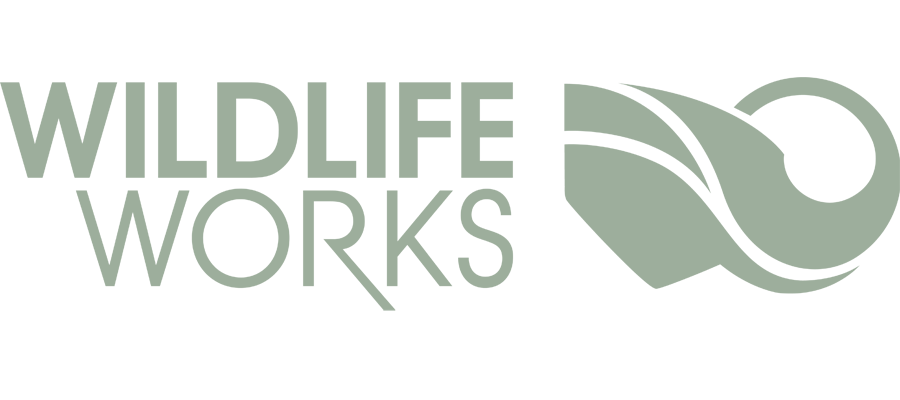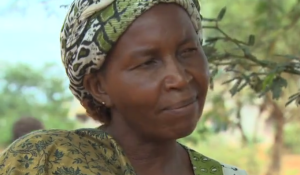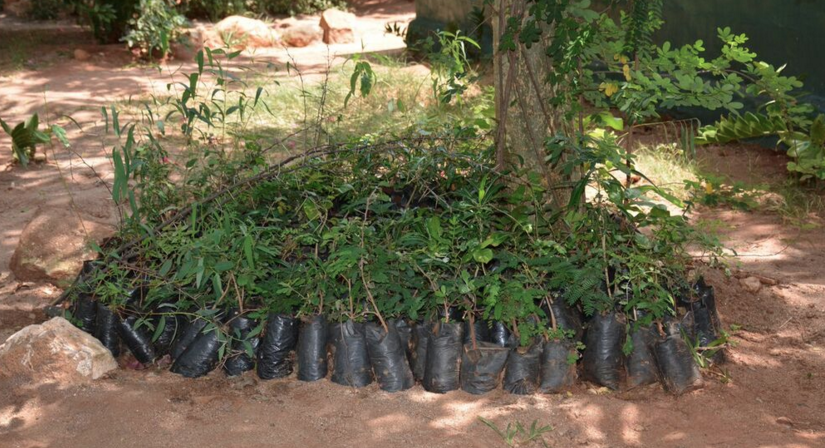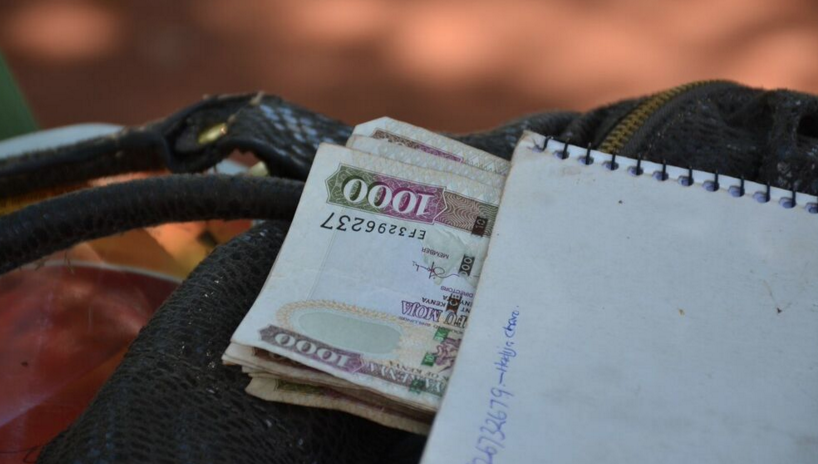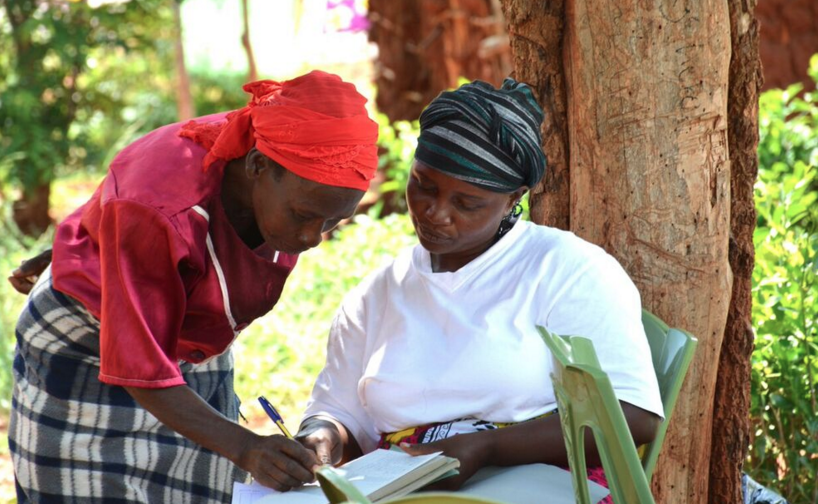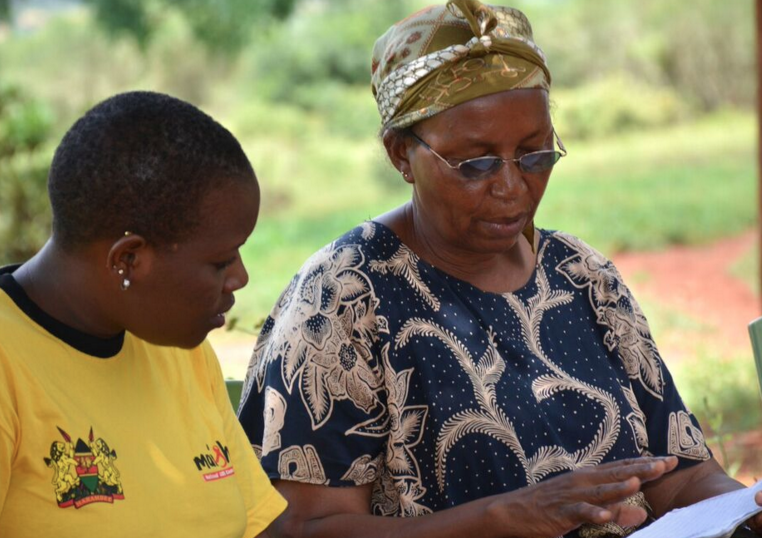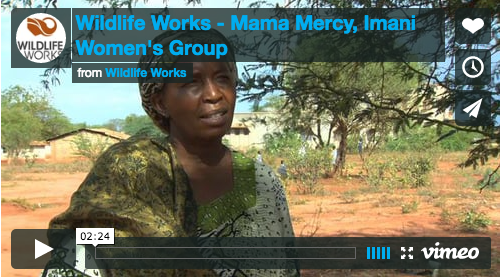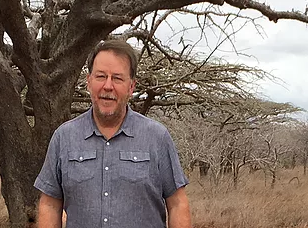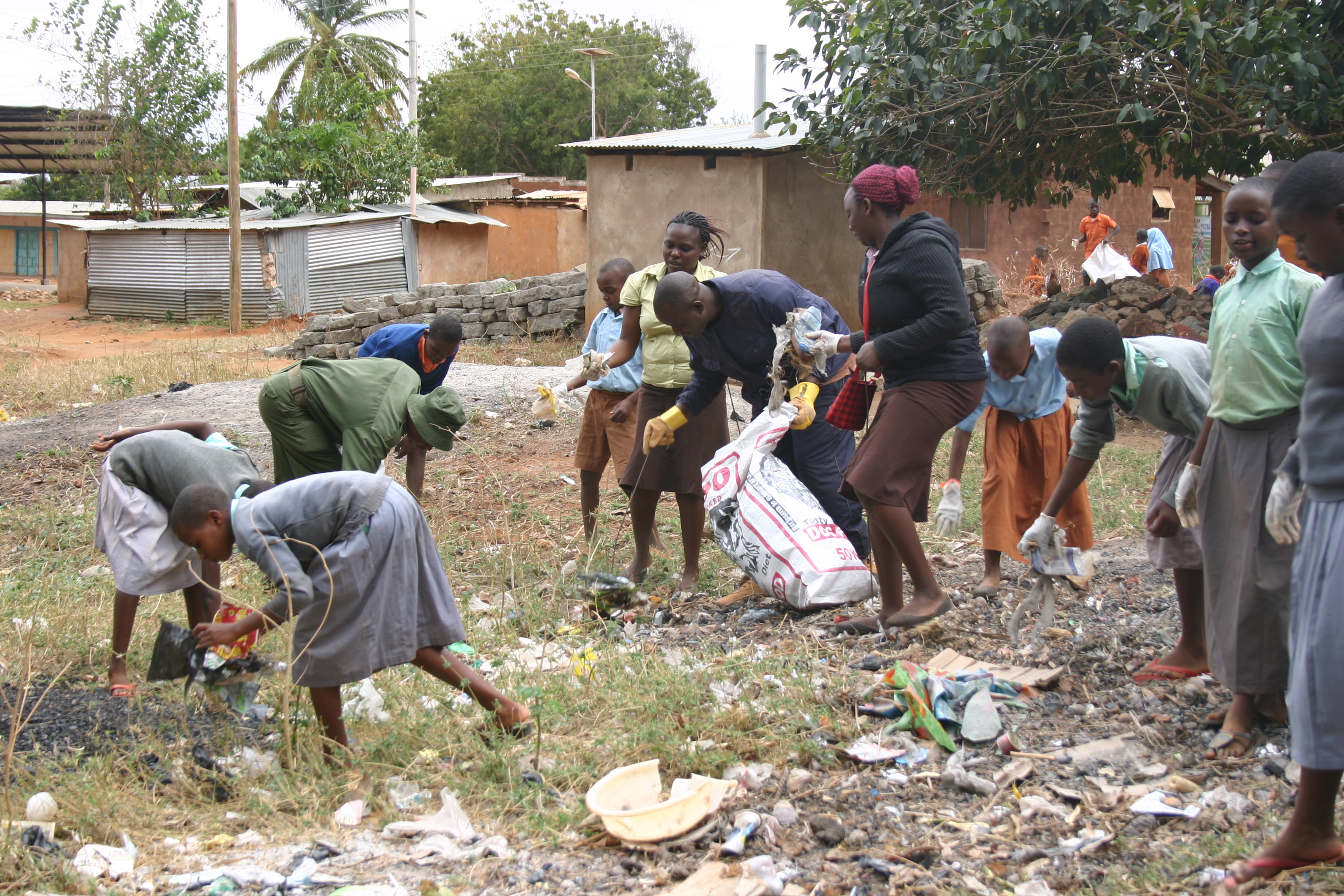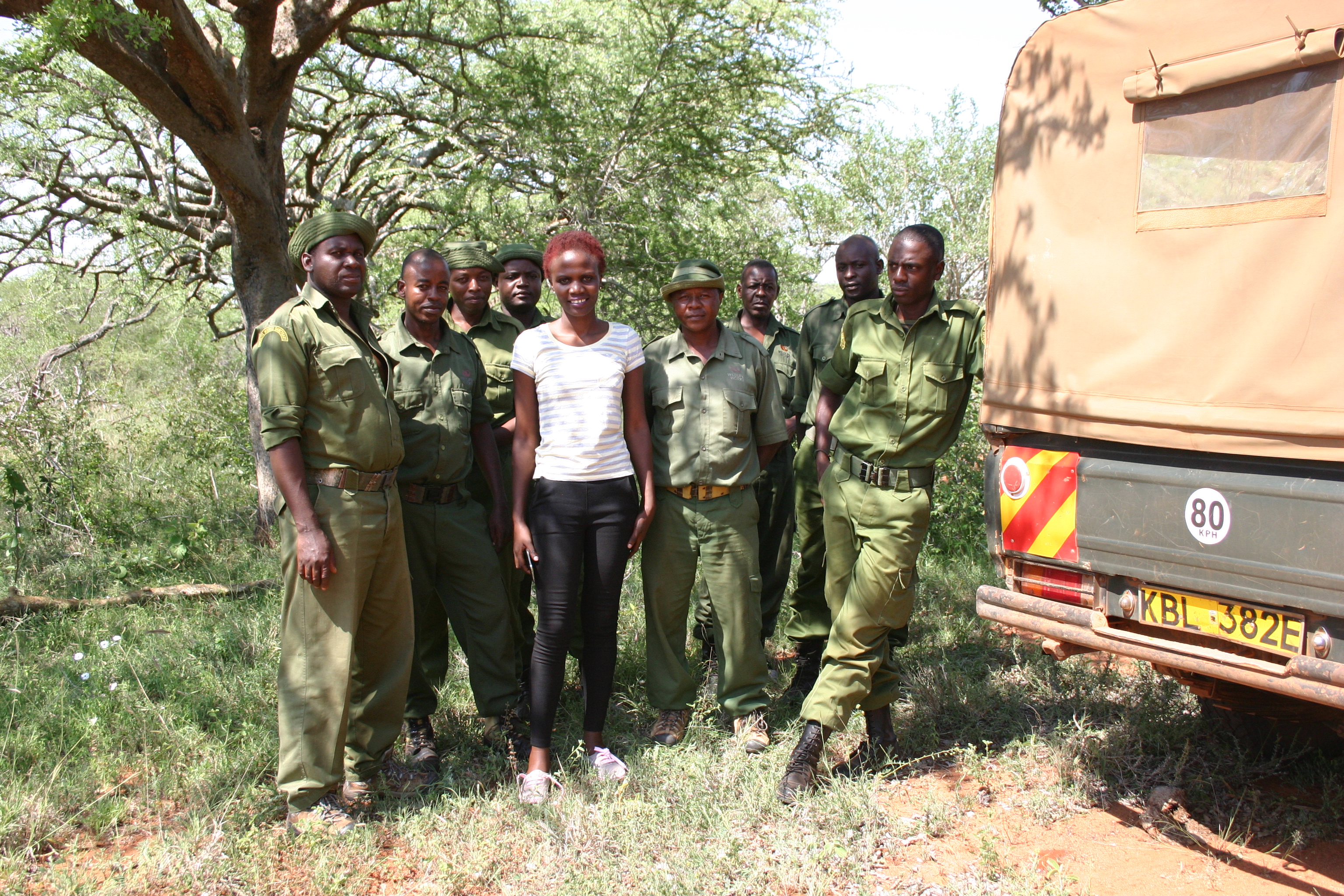Enterprising Women Empower Change
Tumaini Environmental Women’s Group’s Founder Mama Mercy Drive Change in Her Community
Women’s groups provide essential and powerful support systems for the poorest communities in developing counties. By supporting these organizations in the communities we serve, Wildlife Works has seen tremendous growth in the financial and general health of these communities.
The Tumaini Environmental Women’s Group and its founder Mama Mercy is a shining example of how women can drive change. In the village of Itinyi, Mercy Ngaruiya, known as Mama Mercy in the community, has been helping women in her community out of the cycle of poverty for decades. She is known as one of the community’s most enterprising women! Because of this, we have hosted her to speak at conservation events all around the world to represent the voice of her community.
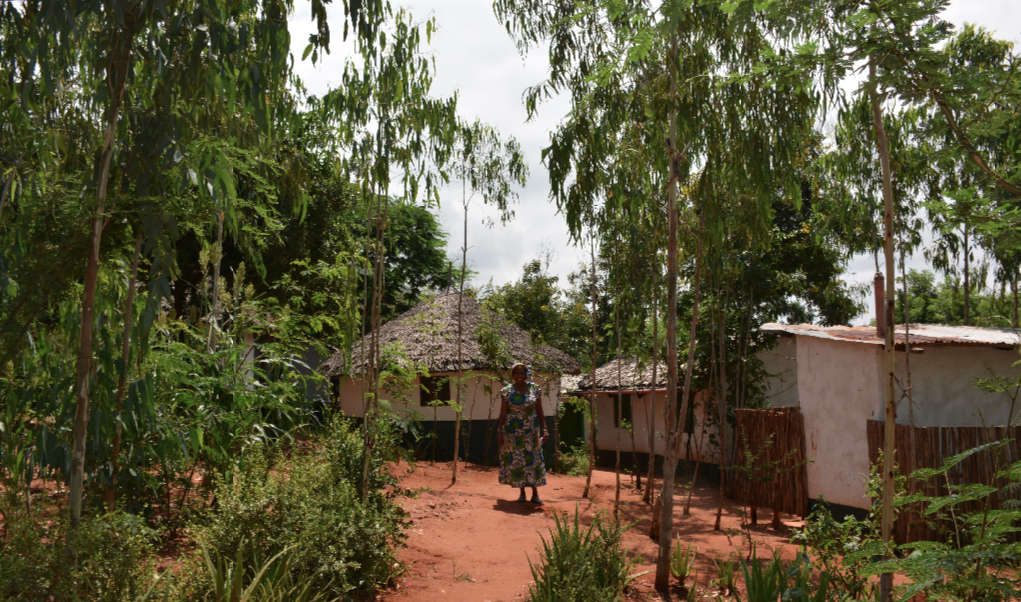 Before starting Tumaini, there were almost no trees in this area.
Before starting Tumaini, there were almost no trees in this area.
After leaving the management of another women’s group for which she was a founding member, Mama Mercy started Tumaini in 2011 with the goal to restore the landscape and give women other forms of income that supported the environment. With the help of Wildlife Works Kasigau Corridor REDD+ Project, Mama Mercy received a donation of seedlings and was sent on a two-week training program. Along with her years of experience leading women, Mama Mercy came back revitalized and equipped to set up Tumaini (“we hope” in Swahili) Environmental Women’s Group for success!
Today, one of the groups’ income activities is selling indigenous seedlings that the women propagated to Wildlife Works. Wildlife Works then looks after the seedlings in the greenhouse until they are large enough to survive a dry season, at which point they are given out to the community to be planted.
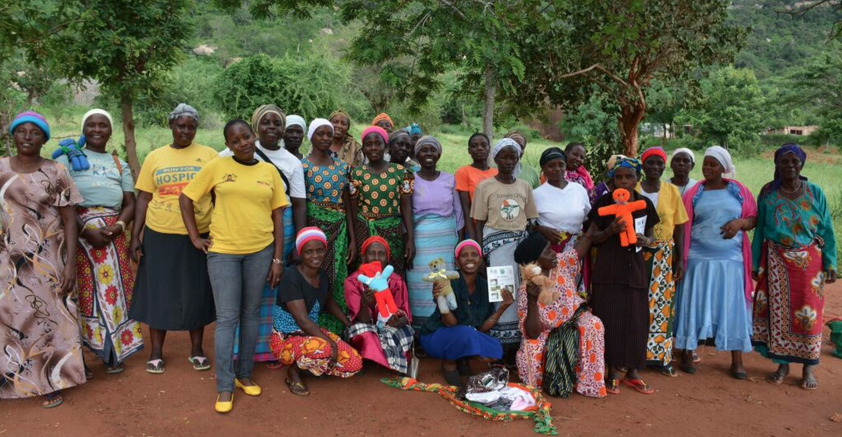
The women also work together to find non-governmental organizations to fund women who have specific and urgent needs. For example, a widow in the community needed a home, so the group was able to secure funding from Camp Kenya to find her one.
Tumaini also participates in tabletop banking (similar to Chamas and Merry-Go-Round banking) where members pool in their own money to offer individual members loans with interest paid back to the lenders. This community-based loan system has been growing in popularity, many times over bank-sponsored micro-loans. Mercy had learned about tabletop banking through World Vision, who had sent her to community training sessions. Mercy decided to start tabletop banking within the group, after seeking a loan herself, which she found to be much more accessible than going to a bank.
For example, in order to obtain a 40,000 Kenya Shilling loan (USD400), from the bank in Voi, the nearest town 30 kilometers away, she was told her that she would need someone to co-sign for her. The round-trip cost to Voi for her and another person would be 1,000 Kenyan Shillings, or USD10. And, she would have to pay the bank 12% interest. She could not afford these fees, and neither could other women in need of loans. Pooling money amongst the community and paying themselves 10% interest seemed like a much better option.
Initially, the women were hesitant to borrow money for fear that they would not be able to repay it. Mercy encouraged the women to borrow, because the group relied on interest to make a profit. Fast-forward five years, women want to borrow increasingly more money and the group now lends as much as it has available.
At the December 2015 meeting, the co-op received repayment for loans in the amount of $2,440.15. The women are using the loans to pay for their children’s school fees, to buy groceries, and to fund their small businesses. They have bought seedlings for their gardens, chickens to produce eggs to sell, provisions for small grocery stores, and materials for making baskets and crafts.
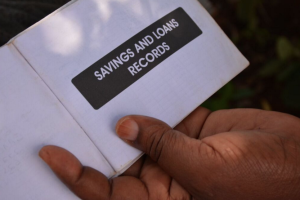
In 2015, each co-op member contributed approximately $26.40, or $2.20 per month. From that amount, two dollars funds co-op lending and 20 cents is allocated for insurance. If someone from the co-op passes away, the insurance covers their outstanding loan and the financial burden does not fall on the family.
All group members receive the same dividend once a year. During their meeting in December, the co-op distributed $1,500 in dividends. Each woman received $50, or a net profit of $23.60, 91 percent of their initial investment. They also received staples to prepare Christmas meals, such as five kilograms of flour, rice, and sugar, and five liters of oil, all bought from the co-op profits.
Tumaini Women’s Environmental Group limits their number of members to 30 but the demand to join is higher so they have trained 18 other groups on how to start tabletop banking.
Because of Mama Mercy’s leadership, vision and dedication, so many more women in her community now have more resources to build brighter futures!
Watch her tell her story here:
* * * * * * * * *
Wildlife Works is the world’s leading REDD+ (Reducing Emissions from Deforestation and Degradation), project development and management company with an effective approach to applying innovative market based solutions to the conservation of biodiversity. REDD+ was originated by the United Nations (UN) to help stop the destruction of the world’s forests.
Over a 15 year history Wildlife Works established a successful model that uses the emerging marketplace for REDD+ Carbon Offsets to protect threatened forests, wildlife, and communities.
The company helps local landowners in the developing world monetize their forest and biodiversity assets whether they are governments, communities, ownership groups, or private individuals.
